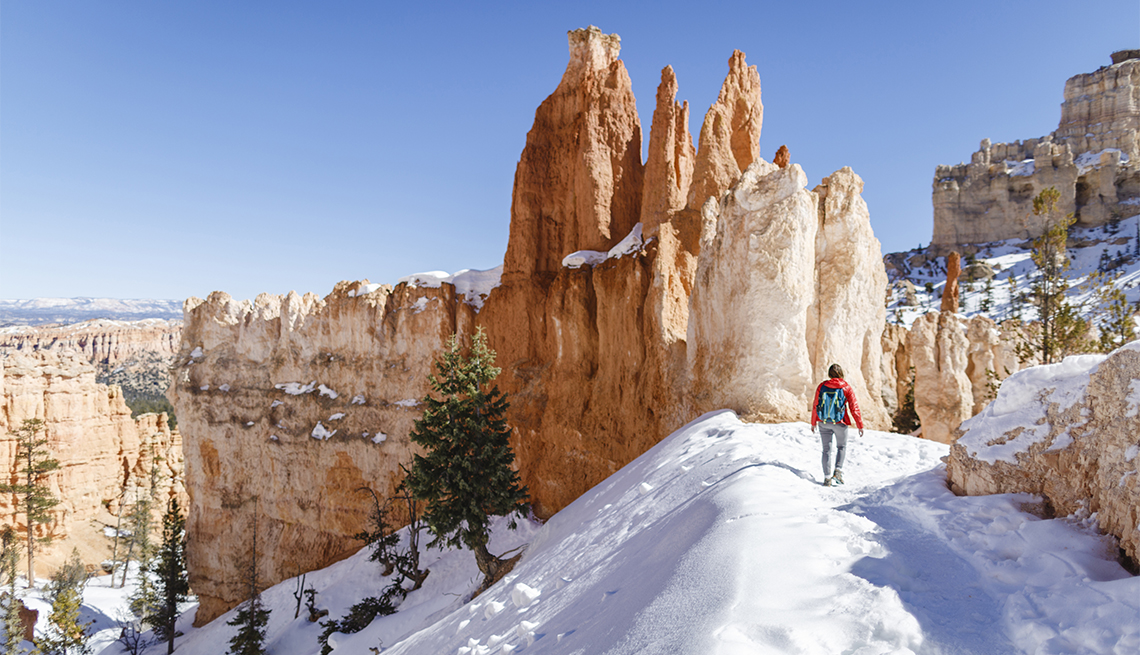
4 national parks to explore this winter
- Select a language for the TTS:
- UK English Female
- UK English Male
- US English Female
- US English Male
- Australian Female
- Australian Male
- Language selected: (auto detect) - EN
Play all audios:

These four spectacular national parks are much less crowded in the cooler months, when they offer a completely different kind of vacation than you'll find in the tourist-clogged summer
season. Bundle up, and enjoy the elbow room. YELLOWSTONE NATIONAL PARK, MONTANA/WYOMING True, Yellowstone is awfully cold in winter: You'll need to pack your warmest parkas, thermal
underwear and snow boots. But you'll be rewarded with the chance to see glistening icy waterfalls, steaming hydrothermal pools and spouting geysers — all without the traffic jams and
packed parking lots that are routine in summer. While the wildly popular park draws more than 4 million people throughout the year, it welcomes fewer than 100,000 January through March.
Jason Whitman During those cold, quiet months, the only road open to cars runs between Mammoth Hot Springs and the northeast entrance. That means you'll be traveling by snowmobile or
snowcoach, your chariots for wildlife viewing expeditions and photography safaris. You can also join guided cross-country ski and snowshoe tours, catch a ranger-led nature program or take a
dip in the Boiling River (where a hot spring merges with the Gardner river). Old Faithful Snow Lodge is open from December 16 to March 1, 2020, and is a short shoveled walk to its namesake
geyser. Mammoth Hotel and Cabins is open from December 15 to March 2, 2020. Book lodging through Yellowstone National Parks Lodges, and if you're flying into Bozeman Airport be sure to
reserve the daily shuttle (winter only) between the airport and the park. DEATH VALLEY NATIONAL PARK, CALIFORNIA This park really sizzles in the summer, but the cooler days of winter — when
daytime temperatures tend to settle in the 60s or 70s, with hardly any rain — offer the perfect weather for exploration. Eric Lo/Getty Images Death Valley has a wide variety of terrain,
allowing you to walk or hike through sand dunes, desert peaks, deep canyons and salt flats where you might glimpse bighorn sheep, coyotes, jack rabbits or a tortoise. You can also take it
slow on a scenic drive to famous spots such as Rainbow Canyon, Badwater Basin (the lowest point in the U.S.) and the 600-foot-deep Ubehebe Crater. Then stay late for an incredible view of
the night sky (this is an official Dark Sky Park).
